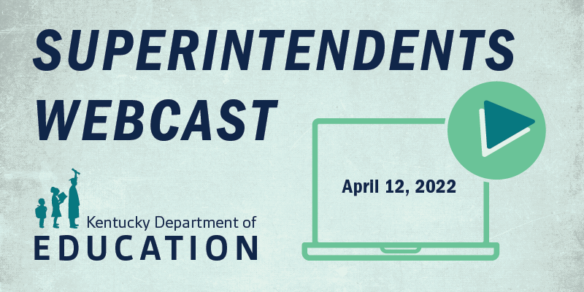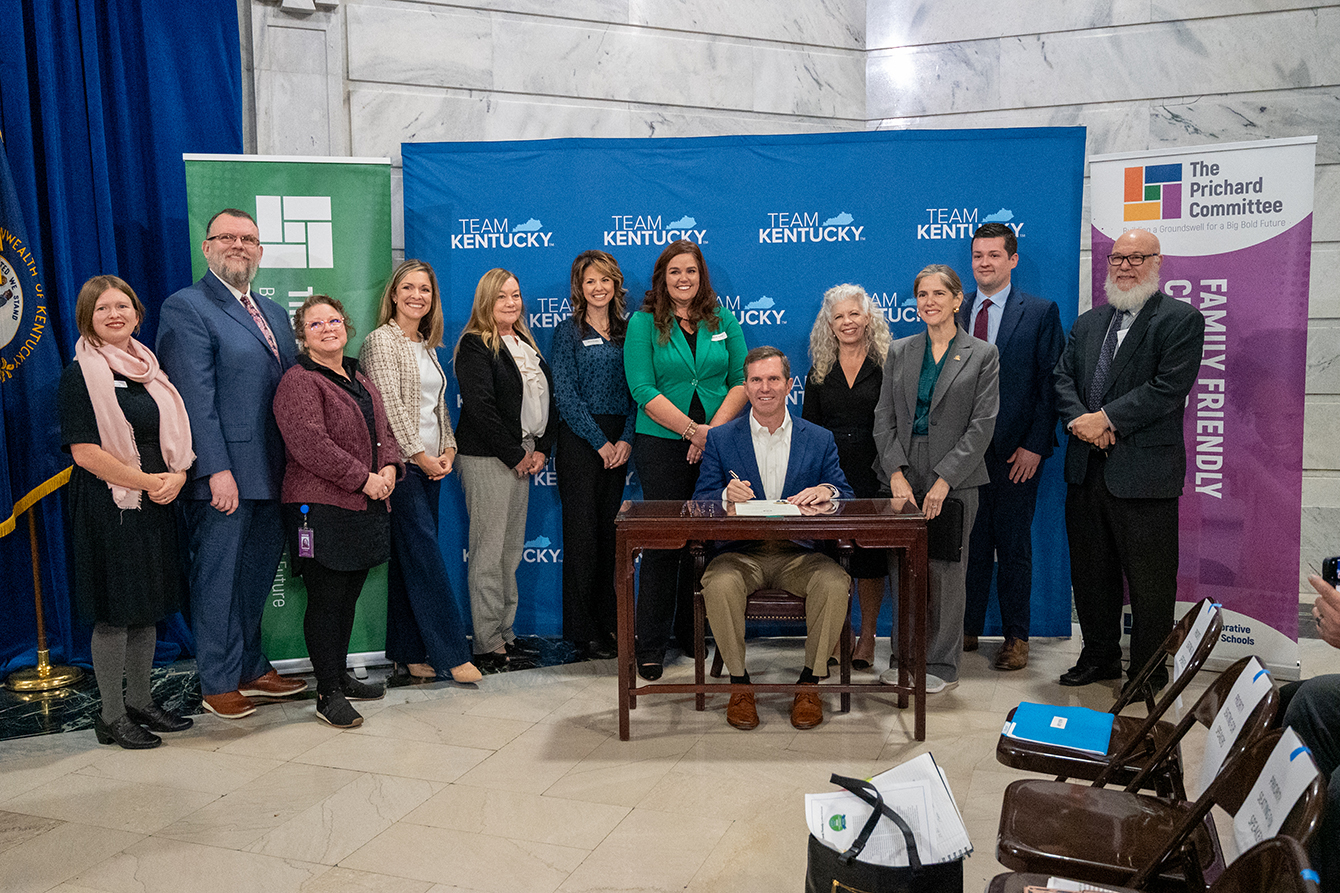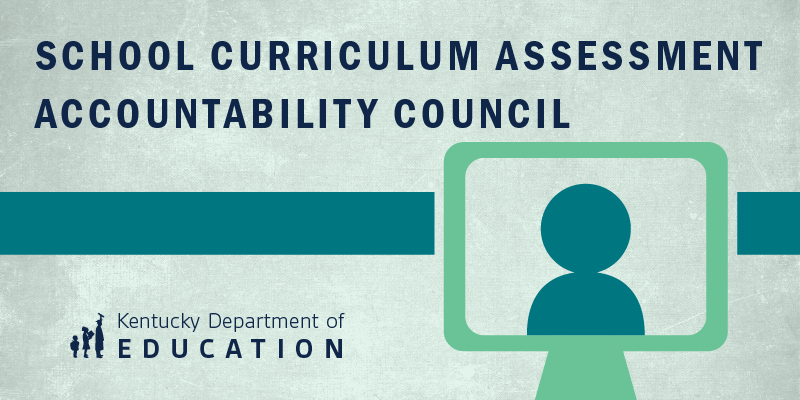 With the nonresident student attendance portions of House Bill (HB) 563 (2021) set to go into effect in July, staff from the Kentucky Department of Education’s (KDE) Office of Finance and Operations (OFO) met with school district leaders for the April Superintendents Webcast to examine how the legislation will affect those districts.
With the nonresident student attendance portions of House Bill (HB) 563 (2021) set to go into effect in July, staff from the Kentucky Department of Education’s (KDE) Office of Finance and Operations (OFO) met with school district leaders for the April Superintendents Webcast to examine how the legislation will affect those districts.
The Kentucky General Assembly passed HB 563 during the 2021 regular session, and it became law on June 29, 2021. The bill specified that districts must adopt policies regarding the terms under which the district shall allow enrollment of nonresident students by no later than July 1, 2022.
Policies and any subsequent changes must be filed with KDE no later than 30 days after its adoption, said Matt Ross, a KDE policy advisor in the OFO.
KDE recommends that any district-adopted policy contain a method to: annually determine the capacity for enrollment of nonresident students at each school within the district; a method for accepting nonresident student applications for enrollment; criteria for enrolling and assigning nonresident students to schools within the district; and a method of determining enrollment when capacity is insufficient to enroll students who apply.
Support Education Excellence in Kentucky (SEEK) funds are the primary source of funding for school districts, and beginning July 1, once a nonresident student enrolls in a school district, they are accounted for the same as resident students for SEEK funding purposes.
KDE will be releasing non-regulatory guidance on HB 563 that will include information on how the bill impacts interscholastic athletics and tuition.
“With a system of open inter-district school choice, the questions around equity become even more important,” said Commissioner of Education Jason E. Glass. “We don’t really have equity if school choice is only available to those who can pay additional tuition to enter a school or a school district that they don’t reside in. What we are providing is KDE’s guidance on that. Certainly, from a policy advocacy perspective, I don’t believe that the charging of tuition is the right thing to do for students in Kentucky.”
Chay Ritter, director of the Division of District Support Services, joined Ross to discuss HB 678, which establishes a permissive two-year pilot project for school districts that allows them to start construction projects, use capital outlay funds or enter into lease agreements without prior approval from KDE.
Districts still are required to follow all applicable laws and regulations. Districts that opt in must continue to submit required forms for record-keeping and data purposes. The bill also requires KDE to approve or deny District Facility Plans and property requests within 30 days of submission.
KDE supports HB 678 and was involved in its development, said Glass. Since he returned to Kentucky in 2020, Glass said many of the state’s superintendents expressed frustration with the time and complexity of the construction process.
“As we move into this more unregulated and autonomous system of control and decision-making when it comes to school construction, I want you to know that I support that,” Glass said.
Kentucky Reading Academies
Micki Ray, chief academic officer in KDE’s Office of Teaching and Learning (OTL), joined Tuesday’s webcast to discuss the Kentucky Reading Academies.
The Kentucky Reading Academies aim to increase the reading outcomes for elementary students by providing K-5 teachers and administrators with high-quality professional learning on how students learn to read.
“We know your districts continue to face unprecedented challenges as a result of the COVID-19 pandemic,” Ray said. “As a result, teachers need unprecedented support. We are hopeful that this opportunity is one key mechanism in providing high-quality literacy instructional support to teachers across the Commonwealth.”
Participating educators will be equipped with evidence-based professional learning on how students learn to read that can be used and applied in their classrooms.
The Kentucky Reading Academies will be implemented in three phases beginning in September 2022, with up to 2,400 educators, Ray said.
OTL staff will offer an informational webinar on Tuesday, April 19, at 4 p.m. ET. Additional information is available on the department’s Kentucky Reading Academies webpage.
“This is not a mandate. It’s not required professional learning,” Ray said. “But we hope that we will have great interest and participation across the state. We truly believe that there are numerous benefits for participating, and ultimately this learning will provide educators with the tools that they need to help students develop into successful lifelong readers and writers.”
Kentucky Department for Public Health School Health Branch
Following updates on where the state stands regarding the ongoing COVID-19 pandemic, Connie White, M.D., deputy commissioner of the Kentucky Department for Public Health (DPH), informed superintendents that DPH has established a School Health Branch.
DPH created the branch through a grant from the U.S. Centers for Disease Control and Prevention for public health workforce development, White said. The School Health Branch will work alongside KDE and support the department’s school health work.
“We’re very excited about this,” White said. “We’re excited to be able to dream with your team as to what can we do as we move forward to be sure that we are providing the best situation for all of our children.”
In other business, superintendents:
- Heard KDE announcements including the debut of a new look and a relaunch of its Kentucky Teacher publication, that six districts have been named to the third cohort of Local Laboratories of Learning and a spotlight on an Anderson County teacher who donated her car to a Mayfield tornado survivor; Glass also encouraged districts to share with KDE how they are using American Rescue Plan Elementary and Secondary School Emergency Relief (ARP ESSER) funds. A page will be created on the KDE website that will host stories from across the state on how these funds are being used. This page will serve as a place for people to read about all the great things Kentucky’s schools are doing with this funding, Glass said.
- Received updates from Kentucky Board of Education (KBE) Chair Lu S. Young. The upcoming KBE meeting on Wednesday, April 20, will be held at the STLP State Championship at Rupp Arena in Lexington. During the board’s April regular meeting, members will discuss their portrait of a graduate work and hear updates from the Commissioner’s Student Advisory Council about the student mental health roundtables that took place last year.
- Heard a legislative update from Brian Perry, KDE’s director of government relations, as the General Assembly prepares to enter the final two days of the 2022 regular session. Glass informed superintendents that following the session, the department will work to put together a comprehensive guidance document on education-related bills that are signed into law.



Leave A Comment